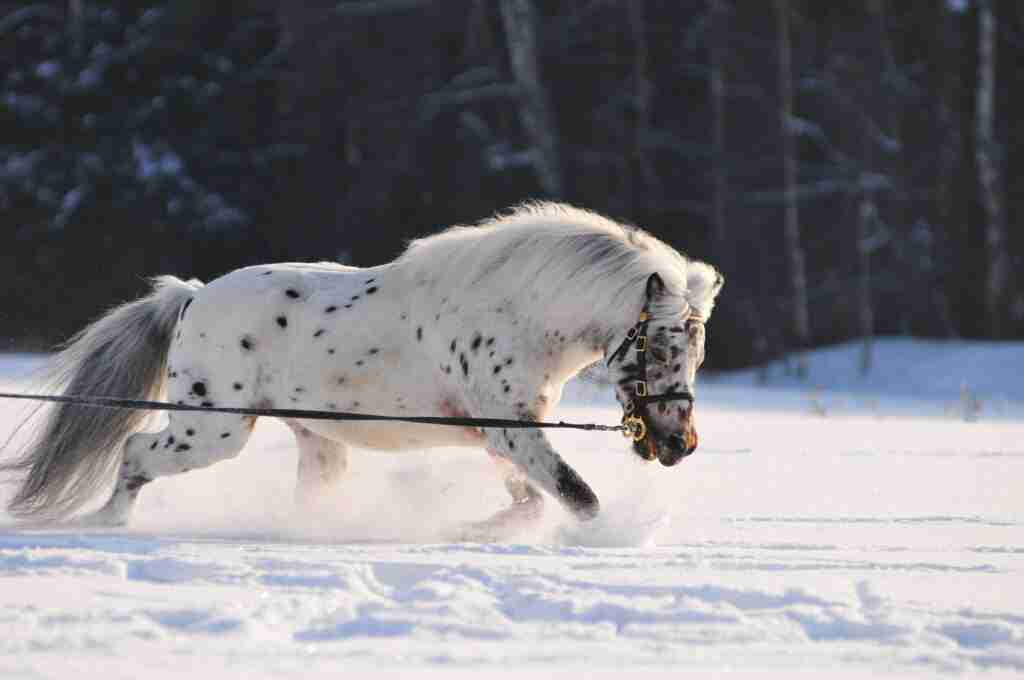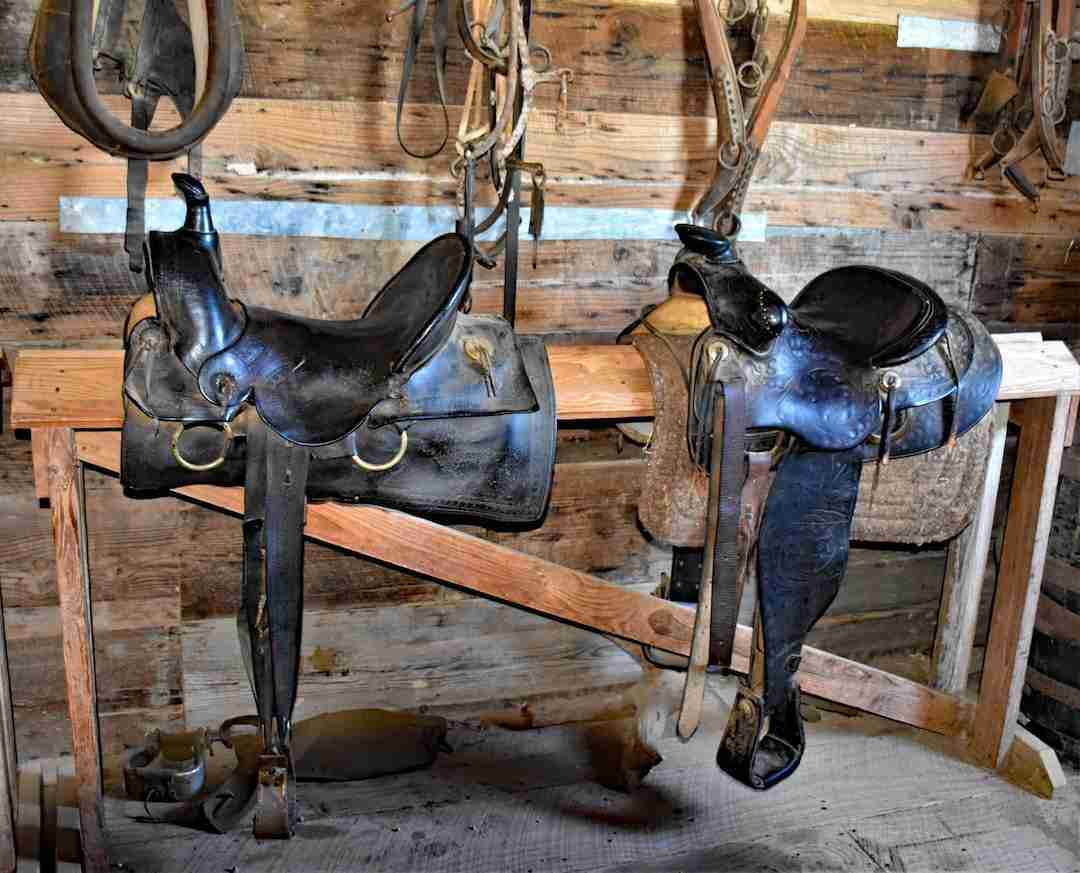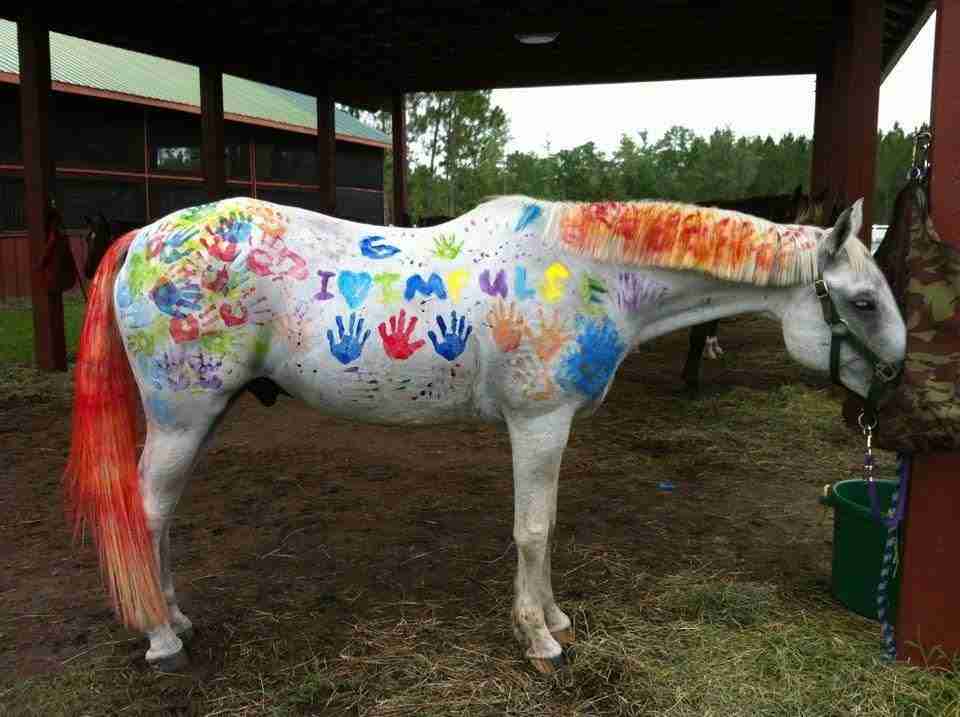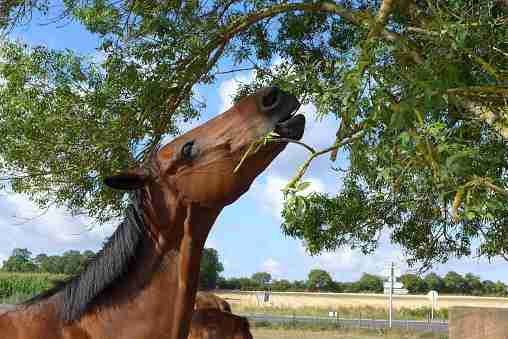Humans first began domesticating the horse over 4000 years ago. Horses have gone from being a primary mode of transportation and muscle power to more of an upper-class pet. As horses have been part of human history, do we know how long they can live?
The lifespan of a horse can be as long as 25 to 30 years. However, much like humans, they have also benefitted from the advancements of science and can live longer given the correct care and nutrition throughout their lives. Although rare, some horses have lived to over 50 years of age.
That being said, a number of factors still need to be considered when it comes to a horse’s longevity. One of these factors is the breed of the horse, as certain breeds have a longer life expectancy than others.
What Is The Lifespan Of A Horse?
Horses will live for 25 to 30 years on average. Their age will be influenced by a number of factors. A horse’s living conditions, feed, and exercise routine all play a significant role in how old a horse can get.
Ensuring a horse is well cared for and free from disease, as well as mitigating dental and hoof damage, will also play a role in a horse’s age.
Lastly, the breed of the horse will have a role to play in the longevity of a horse. Certain breeds are known to live longer than others. It is therefore important to do sufficient research into what type of horse you want to have a proper understanding and expectation on how long the horse will live.
Other Articles To Read:
Factors That Contribute To Longer Lifespan Of A Horse
In order for a horse to have the best possible chance at a long life, it is important that your horse is well cared for.
The following are factors that will influence the health and longevity of a horse:
- Activity and exercise
- Nutrition
- Disease, hygiene, and dental health
- Accommodation
- Breed of horse
Activity And Exercise
For a horse to be healthy, it does need to be regularly exercised. Much like humans, horses can get bored and become depressed. Regular exercise assists with boredom as well as keeping the horse in good physical condition.
Exercise includes being ridden as the interaction with humans helps to provide mental stimulation for horses. Other exercises include the space to run.
Horses should be provided with adequate space in which to move around, and large pastures and fields provide ample room for horses to run and play. It can also be beneficial for horses to have company in the form of other horses or other animals.
Nutrition
Horses are large animals and require sufficient nutrients for good health and longevity. Always make sure that your horse has ample fresh water available. This is very important during hot weather to make sure that the horse does not get dehydrated.
Salt licks are also good for horses as these provide horses with electrolytes to stave off dehydration in hot weather.
Horses naturally eat grass and hay. Make sure that the grass and hay have no contaminants like mold, as this can lead to illness. Both food and water should be available throughout the day so that the horse can eat and drink as needed. Easily accessible food will reduce the possibility of ulcers which can occur if there is a buildup of stomach acid on an empty stomach.
Horses also enjoy carbohydrates in the form of grains, but these should be reserved as treats as excess carbohydrates can cause health problems. Horses can be picky and sensitive eaters, so keep their diet as routine as possible with minimal changes to avoid digestive problems.
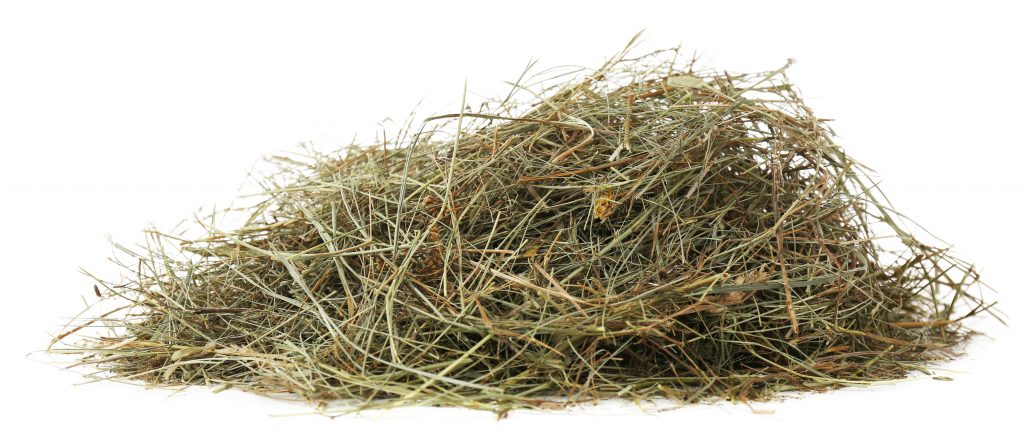
Disease, Hygiene, Hoof, And Dental Health
Much like humans, horses require good hygiene and cleanliness for good health. This not only helps to keep the horse in optimum condition but will also reduce the risk of disease, both in general as well as in terms of a horse’s hooves and teeth which are important for the overall well-being of a horse.
Disease
Horses can be prone to many preventable diseases, and it is, therefore, important to ensure that horses can receive a number of available vaccinations. These vaccinations will stop a horse from catching several common diseases and help to prolong its life in the process, as many of these preventable diseases can negatively affect the lifespan of a horse.
Vaccinations a horse will need will be dependent on your location, how often the horse travels, and the horse’s age.
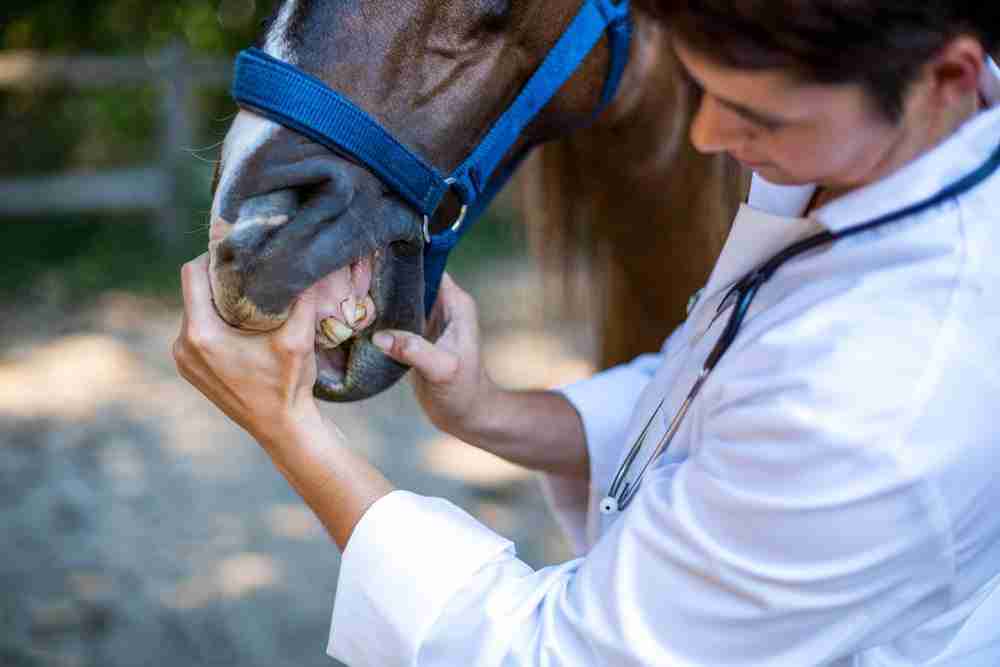
Hygiene
Good hygiene is imperative for the well-being and good health of a horse. A filthy stall, barn, or field will increase the risk of disease.
Hoof Health
We all know the quintessential sound of a horse’s hooves clip-clopping on a surface. The health of those hooves is vitally important for the overall well-being of a horse. Sore or damaged hooves will negatively impact the activity of a horse, with the pain not allowing them to exercise.
Hooves should be kept in good condition and trimmed every few months. If a horse is very active or if it may be required to work or walk on roads or rubble, it may be necessary to engage a farrier to fit horseshoes. Horseshoes are great for providing protection to hooves and are advisable for horses that are more active.
Dental Health
Horses need to have their teeth checked annually as they never stop growing. Regular yearly check-ups provide an opportunity to grind down teeth that aren’t naturally ground down to stop the possibility of eating problems caused by uneven teeth.
The check-ups also help spot gum disease or rotting teeth so that these can be treated before they can cause further illness.
Accommodation
Although horses are quite hardy animals and are quite happy outdoors, horses can also feel the cold. If you live in a cold State, it is best to have a comfy warm stall or barn available for your horse during cold weather or winter.
Horses should not be kept indoors for too long unless ill. The best bet would be to provide a stall with an opening to an open area and give your horse a choice to move out of the stall in cold weather. If it is very cold, the horse may decide to stay inside, but at least it will have the option to get exercise if it wants to.
Stalls and barns are important for keeping cool during hot weather and provide a good shady place for resting in the summer months.
One should clean stalls and barns daily to prevent a buildup of manure. Messy and filthy accommodations can lead to ill health and disease, so cleanliness is imperative to a horse’s well-being.
Horse blankets are also useful for keeping horses warm and healthy and staving off bad health.
Breed Of Horse
The breed of a horse is one of the more pivotal factors on which the lifespan of a horse depends. Although, for the most part, a horse is a horse, the breed of horse can also impact how long it may live.
As with most domestic animals, horses have been bred to fill certain needs and functions. Some horse breeds were bred for size and strength, while others were developed to maximize endurance.
Through all of this selective breeding, specific breeds with specific traits were developed, with some breeds having a longer life expectancy than others.
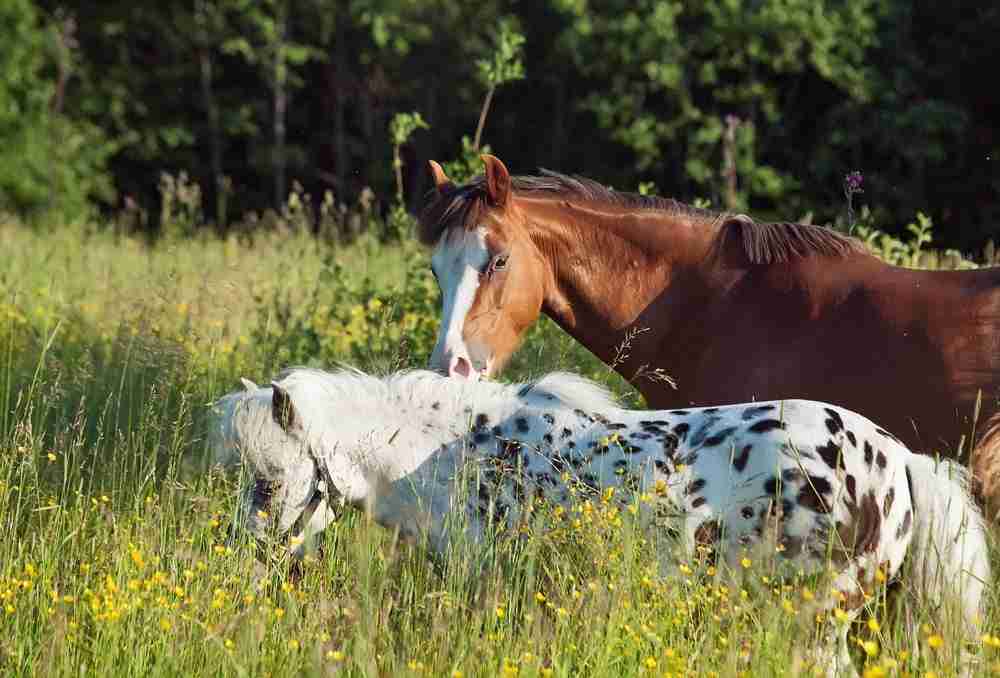
Which Horse Breeds Have The Longest Lifespan?
Although, generally speaking, horses can be said to have a life expectancy of 25 to 30 years of age, a horse’s breed can have a bearing on how long it will live. There are more than 300 horse breeds that are found in the world today.
Horses have been selectively bred since we first began domesticating them thousands of years ago. Breeders have worked to retain distinctive characteristics through curated bloodlines that pass on specific traits and genes.
While many of these traits and genes have been bred to create horses that are basically bred to fit certain functions, long-term in-breeding can also lead to a higher chance of genetic health disorders.
The following is a list of the breeds that have the longest lifespan as well as their most common health disorders:
- Appaloosas
- Arabians
- Haflingers
- Icelandic Horses
- Quarter Horses
Appaloosas
Appaloosas are an American breed that is also the state horse of Idaho. Appaloosas have an average lifespan of 30 years, which is on the upper end of the horse life expectancy range.
This is a stock horse with a characteristic spotted coat. Appaloosas have great stamina and have long been used for endurance racing. They are known to be loyal and gentle and tend to have good relationships with their riders.
The Appaloosa breed is more likely to suffer from Equine Recurrent Uveitis or ERU, which is a disease that can cause moon blindness.
Arabians
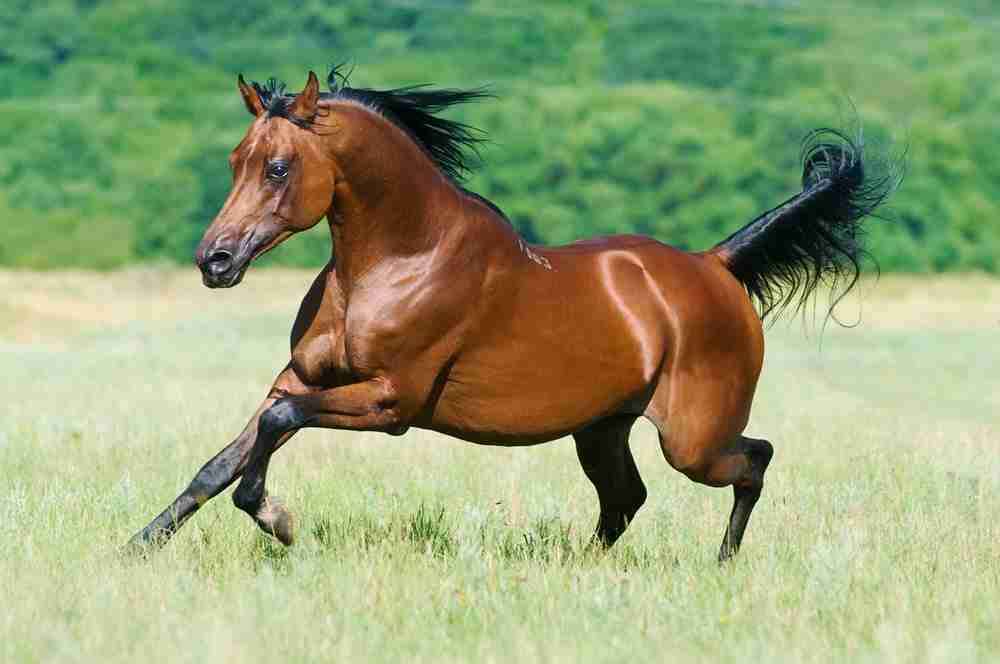
As the name suggests, the Arabian horse breed was developed in Arabia. This is a smaller breed of horse, but like the Appaloosa has very good endurance and stamina. The Arabian horse has a lifespan of 25-30 years, although there have been several Arabian horses that have been known to survive into their 40s.
This breed is one of the most popular horse breeds in the world, as well as being one of the oldest. The Arabian horse is considered to be quite spirited and highly intelligent. They were bred for use in war which is why they have great strength for their small size as well as good stamina.
Arabian horses, unfortunately, are prone to some genetic disorders. However, top breeders do genetic testing and can avoid passing these disorders on.
Haflingers
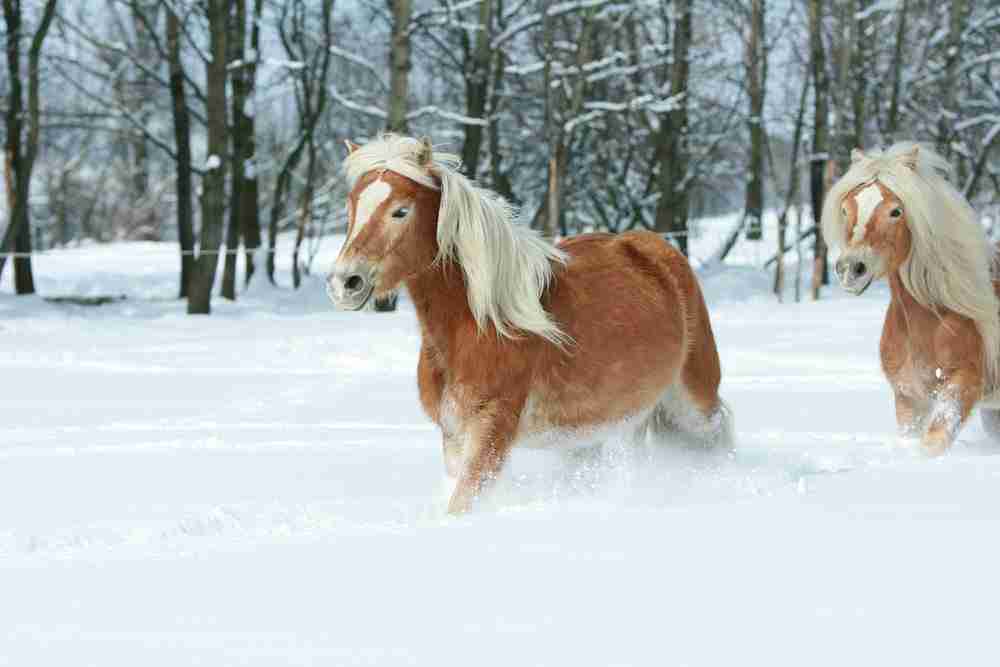
This is another smaller horse breed, although larger than a pony. Haflingers are known to live between 25-30 years, with a number of the breed living well into their 30s. The Haflinger is a great family horse and is well suited to children as they are quiet and gentle.
Originally bred to be packhorses in the Austrian mountains, Haflingers have good stamina and strength and can remain active and healthy even in their old age.
Haflingers are more prone to eye cancer but are otherwise relatively free from genetic disorders and diseases.
Icelandic Horses
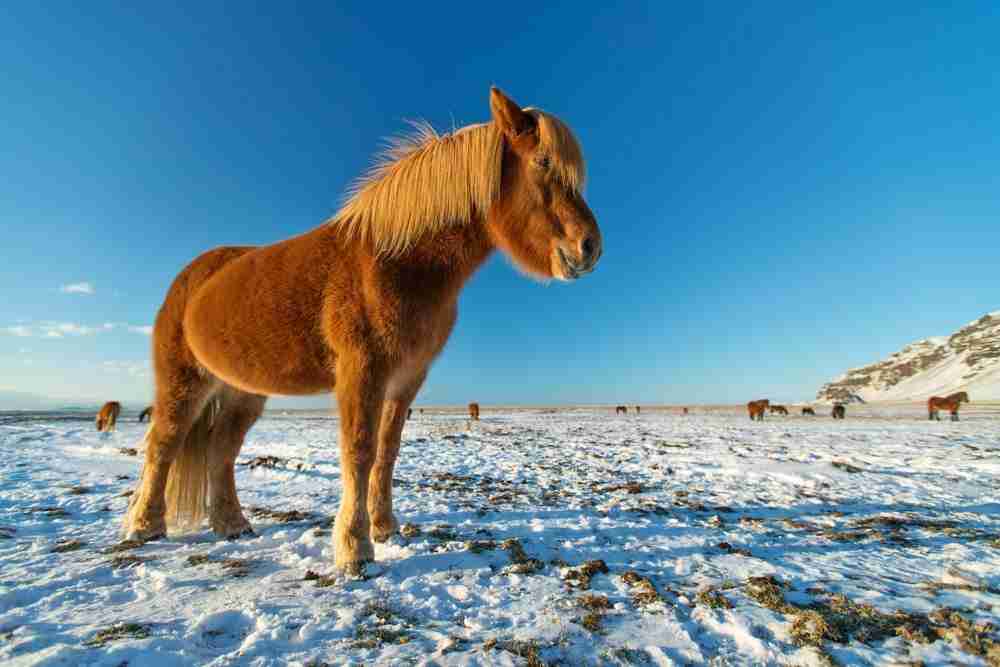
This breed is, as the name suggests, from Iceland. They are also noted to have a lifespan of the general 25-30 years, but like the Haflingers, there are a number of Icelandic horses who have been recorded to have lived for over 30 years.
As Iceland is quite far removed from the rest of the world, the Icelandic breed is largely a result of natural selection, and the breed is highly protected. Very strict measures are in place to ensure that the breed is not tampered with.
Icelandic horses have a good temperament and are very versatile in function. What is more, they have 5 gaits!
The downside to the Icelandic horse is that due to its isolation, it is a lot more prone to disease. To ride one, you will need to disinfect your clothing. Once an Icelandic horse leaves Iceland, it is not allowed to return, and no other horses are allowed to enter the country either.
Quarter Horses
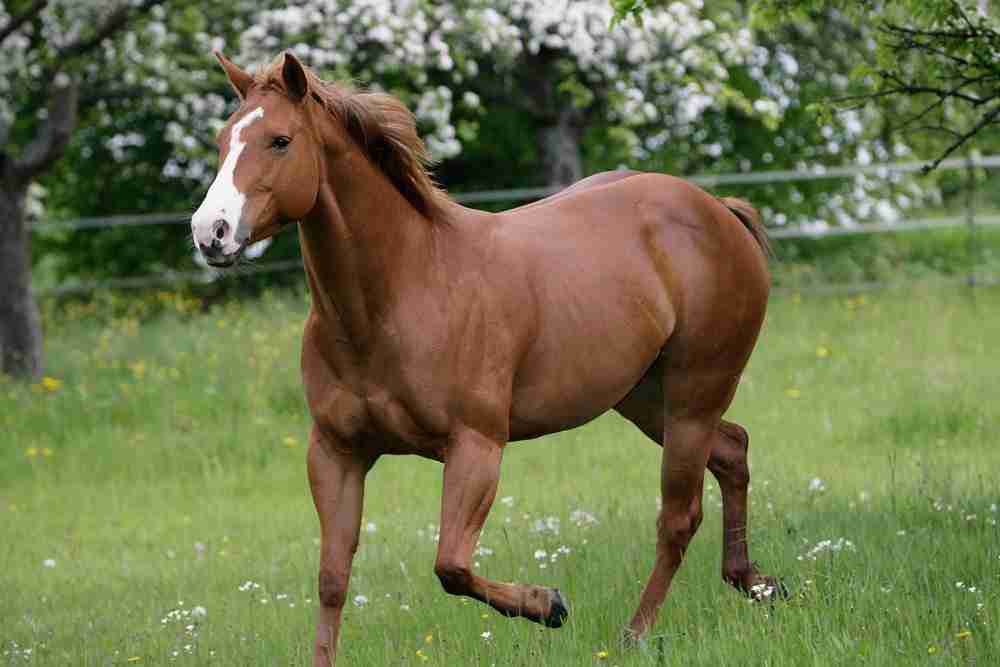
Last but not least, the American Quarter horse has a life expectancy of 25 to 35 years, making it the breed with the greatest longevity of horse breeds in the world. And there have also been numerous instances of the breed living for over 35 years.
The Quarter horse is called such as it is the fasted horse over a quarter of a mile. These are a very popular horse breed and are extremely versatile.
The Quarter horse is easy-going, has a great temperament, and enjoys work. This is an intelligent horse breed that varies in size from quite small at 14 to 15 hands to 18 hands.
The Quarter horse is prone to a few genetic disorders, with most being treatable. Unfortunately, Glycogen branching enzyme deficiency (GBED) however is generally fatal. Proper breeding and genetic testing are, however, helping to reduce the occurrence of these genetic diseases.
Conclusion
Horses are considered to be intelligent and beautiful animals. While they may not live to the age of a human, fortunately for us, they will still live to a reasonable age of 25 to 30. Improved conditions and advances in knowledge mean that, if anything, the average lifespan of a horse will expand.
Like other species, life expectancy is also based on the environment in which it is kept, and the lifespan of a horse increases. Healthy, clean, active environments in combination with good nutrition and health care provide the best chance for a horse to reach old age. As with many species, the lifespan of a horse can be increased.
Resources
https://www.thesprucepets.com/all-about-horse-age-and-lifespan-1887395 https://pets.webmd.com/how-long-do-horses-live#:~:text=The%20average%20horse%20lives%20for,Nutrition

